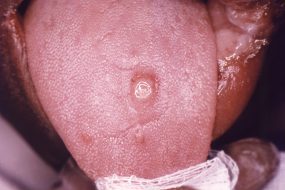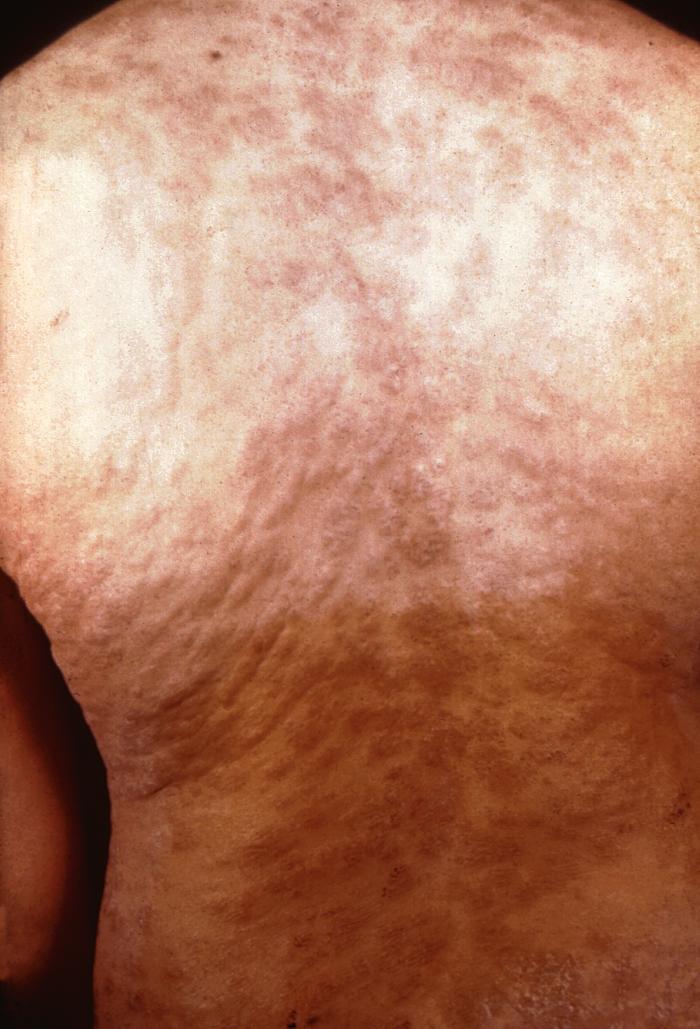
According to the CDC:
“Reported syphilis cases increased 80% in the United States between 2018 and 2022, (from 115,000 to more than 207,000), compounding a decades-long upward trend. If untreated, syphilis can seriously damage the heart and brain and can cause blindness, deafness, and paralysis. When transmitted during pregnancy, it can cause miscarriage, lifelong medical issues, and infant death.”
On January 30th, 2024, the U.S. Department of Health and Human Services (HHS) released a statement titled ,”HHS Announces Department Actions to Slow Surging Syphilis Epidemic”, in response to the surging number of syphilis and congenital syphilis cases nationwide.
History of Syphilis
There is controversy surrounding when syphilis was discovered. Theories range from syphilis being transmitted to Europeans from the Americas by the crew(s) of Christopher Columbus. Another theory links the discovery of a 9,900 year old skeleton found in a Mexican cave in the Yucatan Peninsula who had contracted a syphilis like infection.
Syphilis also holds the dubious honor of being the first identified sexually transmitted infection.
With the introduction of the dark field microscopy in 1906, scientists could visualize the spirochete of syphilis. A few years later, in 1910, German bacteriologist Augus Wasserman developed the first serologic test. It wasn’t until 1949 that a specific test for syphilis was available, called the Treponema Pallidum immobilization test. This enabled medical practitioners to detect and appropriately treat the infection.
How syphilis was treated in the recent past was almost as deadly as the disease itself. Some of the treatments included ingesting mercury or turpentine, and a potion made from the guaiac tree that induced diarrhea and excessive perspiration.
We now know that these treatments are dangerous and toxic. The discovery of highly effective antibiotics- namely Penicillin- discovered by Alexander Fleming in 1928 has saved many lives worldwide.
“In the United States, syphilis was close to elimination in the 1990s, so we know it’s possible to reverse this epidemic,” said Jonathan Mermin, director of CDC’s National Center for HIV, Viral Hepatitis, STD, and TB Prevention.
On January 30th, 2024, the U.S. Department of Health and Human Services (HHS) released a statement titled ”HHS Announces Department Actions to Slow Surging Syphilis Epidemic”, in response to the surging number of syphilis and congenital syphilis cases nationwide.
What is Syphilis?
Syphilis is a spirochete (a group of spiral-shaped bacteria), some of which are serious pathogens for humans. It is a systemic disease (affecting the entire body). It has a long latent period during which individuals have no signs or symptoms but can remain infectious.
How Transmitted
Syphilis doesn’t live outside the body very long; however, a person can have syphilis and not even know it due to lack of symptoms.
Primarily transmitted via sexual contact with body fluids.
- Although uncommon, syphilis can be transmitted via kissing someone with lesions. Infants have been known to contract syphilis through chewed food given to them from someone with active sores in the mouth or lips.
- Syphilis can also be transmitted from pregnant women to their baby, which is called congenital syphilis (CS). See statistics and symptoms below under types of syphilis.
The Great Imitator
Syphilis symptoms are often mild, painless, or even hidden inside of the body, where they can’t be seen. This means they may be overlooked or brushed off as something less serious. Syphilis has been called the “great imitator” because its symptoms are so similar to other infections and diseases.
At any stage, syphilis can spread and cause damage to the brain and nervous system (neurosyphilis) and the eye (ocular syphilis).
(from CDC website)

Primary Syphilis
The first sign of syphilis is usually:
- A small painless sore called a chancre, which develops within 3 weeks of infection. However, symptoms may not appear until 10-90 days after infection. Chancres are usually painless so many times a person may not even know they have the sores if they are hidden, such as in the genital area and in the vagina. Chancre sores can also appear on the lips or mouth.
The chancres clear up on their own within 3-6 weeks, but the infection still lingers.

Secondary Syphilis
While a chancre is healing or several weeks after it has healed, a person with syphilis may progress to the secondary stage. This stage, just like primary stage, can appear to go away but syphilis infection remains.
Secondary syphilis symptoms include:
- Skin rash that doesn’t itch
- Sores in the mouth, vagina, or anus
- Fever
- Headache, muscle aches
- Swollen glands in neck, groin, or armpits
- Weight loss
- Hair loss
- Sore throat
- Fatigue
With or without treatment, syphilis stays in the body, and the infection can progress to the latent or even tertiary stage of syphilis.
Latent Syphilis
Latent syphilis symptoms:
- No symptoms– even for years
Although latent syphilis is silent with no visible signs or symptoms of syphilis present, the infection isn’t gone. During the early part of the latent stage, a person is contagious, even when no signs are present.
Tertiary Syphilis
Many people with untreated syphilis don’t develop tertiary syphilis. However, when it happens, it’s very destructive. Tertiary syphilis can impact many different organ systems and cause serious problems and even death.
Tertiary syphilis symptoms may include:
- Large sores called gummata, which appear inside the body or on the skin
- Strokes
- Numbness
- Deep, boring bone pain
- Heart problems
Congenital Syphilis (CS)
CS cases have more than tripled in recent years. Over 10 times as many babies were born with syphilis in 2022 than in 2012. This is the highest number reported in one year since 1992.
Congenital syphilis can be dangerous. The Centers for Disease Control and Prevention (CDC) reports that up to 40% of babies born to women with untreated syphilis may be stillborn, or die from the infection as a newborn. Babies born with congenital syphilis can suffer from deformed bones, severe anemia (low blood count), brain and nerve problems, an enlarged liver and spleen, and skin rashes. If there is a syphilis sore on the breast or nipple, mothers shouldn’t breastfeed since contact with the sore can spread syphilis to your baby.
Syphilis can be treated with antibiotics during pregnancy to both decrease the risk of spreading it to the baby and stop the infection’s progression in the mother.
While syphilis can be treated at any stage, treatment does not reverse the damage that has already been done.
Diagnosis and Treatment
Without treatment, syphilis can cause serious health problems including damage to the heart and brain, and can cause blindness, deafness and paralysis. If transmitted during pregnancy, it can cause miscarriage, infant death and lifelong medical issues. With the right antibiotics, syphilis can be cured.
Syphilis is usually diagnosed with a blood test.
High-risk individuals and pregnant women should be tested for syphilis, according to CDC guidelines.
High risk is defined as:
- Sex with multiple partners
- Unprotected sex
- And exposure to partner with a known STI
- For more information go to the CDC website on STI and HIV Infection Risk Assessment.
Mandatory Reporting but Confidential
All STIs, including syphilis, are required to be reported and results are kept confidential. The reporting requirements differ by state. Follow up and notification of sexual partners vary within jurisdiction.
The FDA webpage can assist you in locating home and lab testing centers here: Find All FDA-Approved Home and Lab Tests. From there, you can link to the FDA approved home tests locator.
Antibiotic Shortage
Over the past year, there has been a shortage of Bicillin, an antibiotic used to treat syphilis. In addition, last year all U.S. states lost funding for STD (STI) prevention, affecting the ability at a statewide level to respond to the syphilis outbreak.
One Antibiotic That Has Proven Efficacy
Doxycycline an antibiotic has proven to be an effective treatment to treat many STIs, including syphilis. Because of the shortage of Bicillin, it could be used as an alternative antibiotic. If exposure to syphilis or any sexually transmitted infection is suspected, seek the guidance of a healthcare professional.
Stigma Preventing Treatment
Unfortunately, there is still a stigma surrounding any sexually transmitted infection. Because of this, many fail to get tested. Many fail to notify those they had sexual encounters with. Because of this, many sexually transmitted infections continue to spread unchecked.
Syphilis, along with other infections, if not treated, can lead to permanent and serious health consequences. The CDC estimates that approximately one in five people in the U.S. had a sexually transmitted infection (STI) on any given day. In other words, STIs are more common than you may think. Don’t let the stigma prevent you from seeking treatment.
- Brooke Lounsbury, RN
Medical Content Writer
Lifesaving Medications
Recent Posts
Keeping you informed and safe.
Medical Readiness: What Really Kills First
When Disaster Strikes, It’s Not Hunger or Thirst That Takes the First Lives In every disaster zone, from hurricanes in the Caribbean to war zones in Ukraine, the pattern is the same. People worry about food and water, but it’s infection that kills first. A small wound...
Exploring Dr. William Makis’ Hybrid Orthomolecular Cancer Protocol: Focus on Ivermectin and Mebendazole/Fenbendazole
Exploring Dr. William Makis’ Hybrid Orthomolecular Cancer Protocol: Focus on Ivermectin and Mebendazole/Fenbendazole *Disclaimer: This article is for educational purposes and does not constitute medical advice. Always seek professional guidance.* In the evolving...
Be Prepared for Life’s Unexpected Moments
3 Reasons EVERYONE should have emergency medications avaiable. It's all about access—access to medications and care when you need it most. And when things happen outside of your control that access can disappear.Below are 3 examples of how easily this access can be...
Youth Preparedness: Teaching, Building, and Coping with Disasters
Educating and preparing your children ahead of time means fewer surprises in the event of an emergency.Growing Up Prepared: Empowering Youth in Disaster Preparedness As we observe National Preparedness Month, it's crucial to remember that disasters can strike at any...




